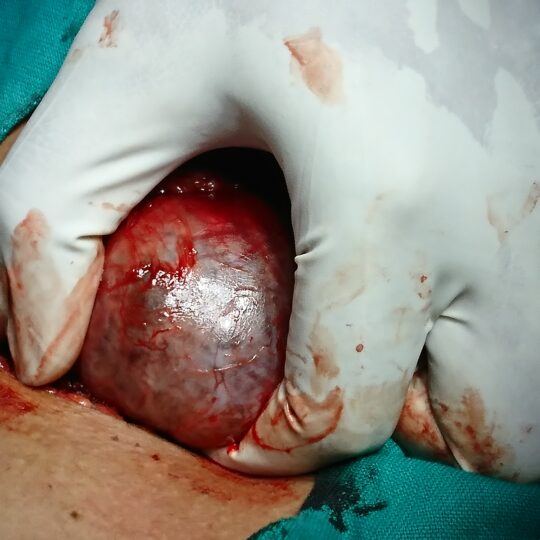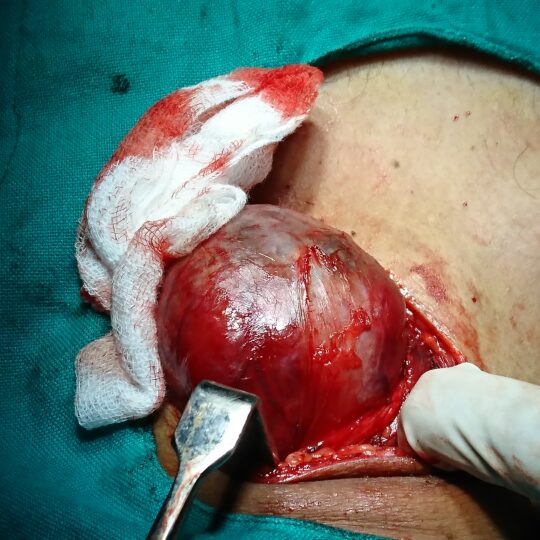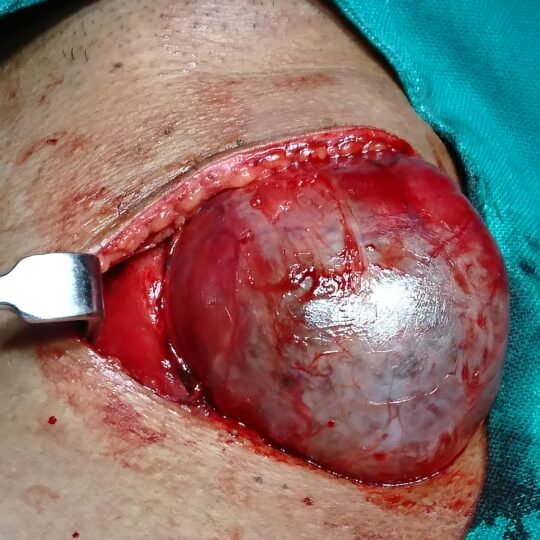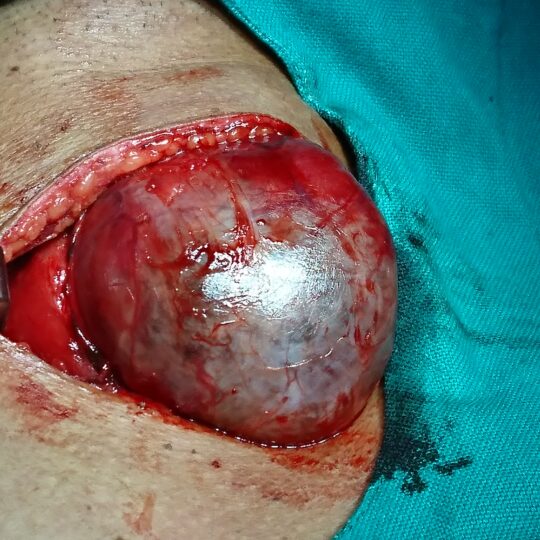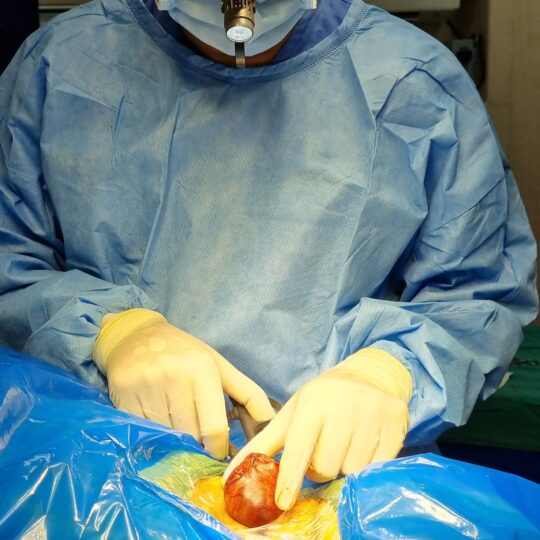Thyroid Swelling
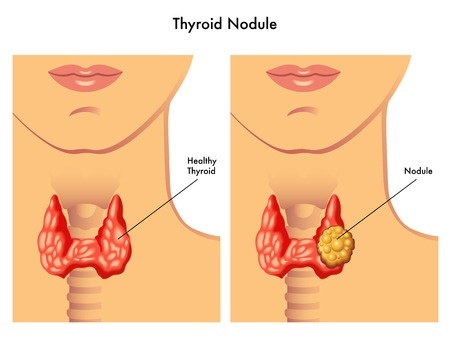
WHAT IS THE THYROID GLAND?
The thyroid gland is a butterfly-shaped endocrine gland that is normally located in the lower front of the neck. The thyroid’s job is to make thyroid hormone, which are secreted into the blood and then carried to every tissue in the body. Thyroid hormone helps the body use energy, stay warm and keep the brain, heart, muscles, and other organs working normally.
GENERAL INFORMATION
Your doctor may recommend that you consider thyroid surgery for 4 main reasons:
- You have a nodule that might be thyroid cancer.
- You have a diagnosis of thyroid cancer.
- You have a nodule or goiter that is causing local symptoms – compression of the trachea, difficulty
swallowing or a visible or unsightly mass.
4. You have a nodule or goiter that is causing symptoms due to the production and release of excess thyroid hormone – either a toxic nodule, a toxic multinodular goiter or Graves’ disease.
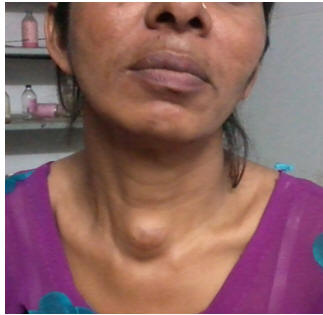

The extent of your thyroid surgery should be discussed by you and your surgeon and can generally be classified as a partial thyroidectomy or a total thyroidectomy. Removal of part of the thyroid can be classified as:
- A hemi-thyroidectomy or thyroid lobectomy – where one lobe (one half) of the thyroid is removed;
- An isthmusectomy – removal of just the bridge of thyroid tissue between the two lobes; used specifically for small tumors that are located in the isthmus.
- Finally, a total or near-total thyroidectomy is removal of all or most of the thyroid tissue.
The recommendation as to the extent of thyroid surgery will be determined by the reason for the surgery. For instance, a nodule confined to one side of the thyroid may be treated with a hemithyroidectomy. If you are being evaluated for a large bilateral goiter or a large thyroid cancer, then you will probably have a recommendation for a total thyroidectomy. However, the extent of surgery is both a complex medical decision as well as a complex personal decision and should be made in conjunction with your surgeon.
This page and its contents
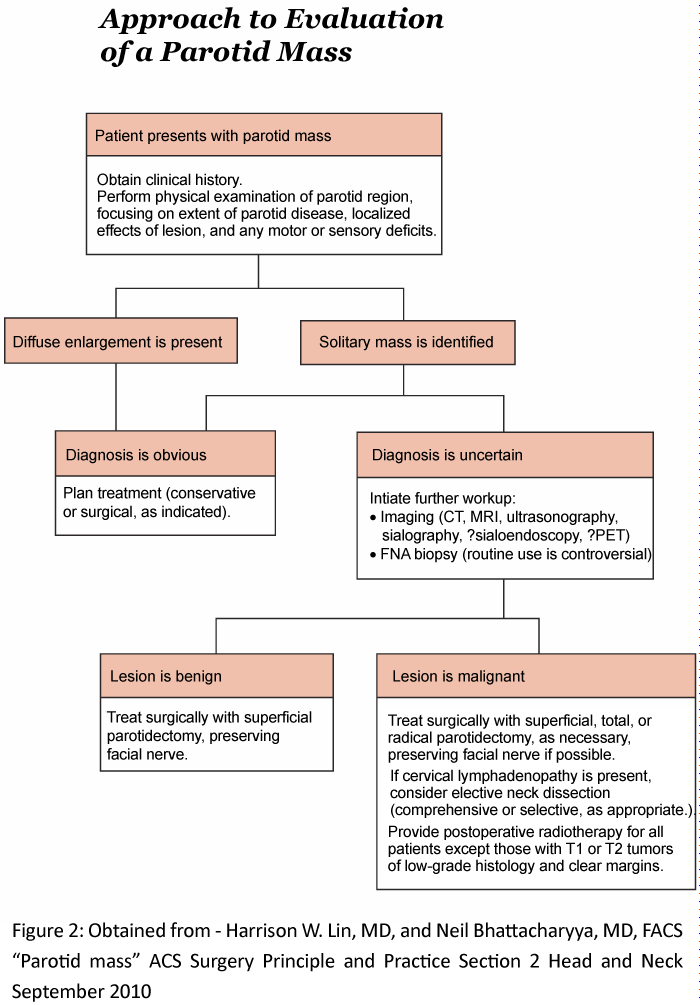
Thyroidectomy Surgery Post-Operative Instructions
- You may have throat discomfort and hoarseness for 3-5 days following surgery. A humidifier or vaporizer should be used in the bedroom to decrease throat pain.
- Take pain medication as prescribed. Take a mild laxative. Avoid straining with bowel movements.
- Obtain all medications and nasal sprays prescribed and use as directed. Antibiotics are used in the initial post-op period to prevent infection while the incision is healing.
- Take all of your routine medications as prescribed. Avoid aspirin and aspirin-like products
- There are no diet restrictions, but alcohol consumption is not recommended and tobacco use is prohibited as Nicotine decreases blood flow to the healing nasal tissues and can actually compromise wound healing.
- No heavy lifting (nothing more than 10 lbs), no bending or stooping to lift, and no vigorous exercise
- No airplane travel for 2 weeks following surgery.
- Showering is typically allowed 24 hours after surgery. Do not scrub at the incision, and pat dry with a towel. The incision line may also be cleaned with hydrogen peroxide on a Q-tip or cotton ball.
- Signs of a post-operative infection, which may occur within the first 2 weeks after surgery, include fever to 101.5, redness and swelling at the surgical site, and foul-smelling drainage from the incision line
- After surgery, patients are typically seen in the office 7-10 days later to inspect the incision, to review the pathology report and to discuss whether any further testing or treatment are necessary.

Contact us
Bayya Hospitals
12-25-192, Bhagath Singh Centre, Kothapet, Guntur, Andhra Pradesh 522001
0863-2225729
+91 6304429294
+91 93819 22827
Useful Links
Consultation Hours
For ENT
Monday – Saturday 9AM – 1:30 Noon,
Evening 5:30PM to 8:00PM
Sunday – CLOSED
For EYE
Monday – Saturday 9AM – 5:00PM
Sunday – CLOSED
